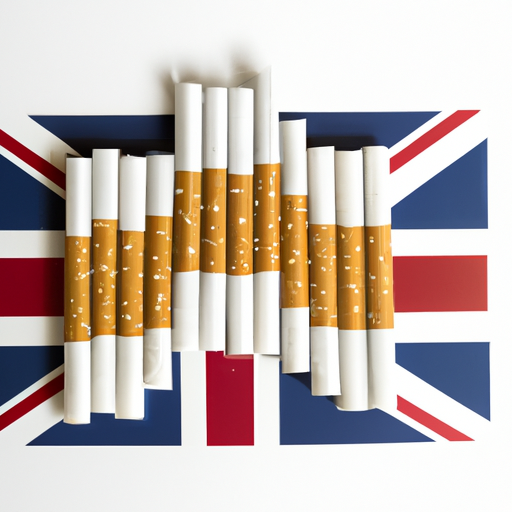
As a resident of the United Kingdom, I have seen the impact of cigarettes on our society firsthand. It’s a topic that has been heavily debated and regulated in recent years, but the fact remains that cigarettes are still a prevalent part of our culture.
The history of cigarettes in the UK can be traced back to the 16th century when they were first brought over from the Americas. At the time, smoking was seen as a status symbol among the wealthy and elite. But it wasn’t until the 19th century, with the Industrial Revolution, that cigarettes became more widely available and affordable for the general public.
In the early 20th century, cigarette consumption in the UK experienced a significant increase. The tobacco industry was booming, and advertisements for cigarettes were everywhere – from billboards to magazines. Cigarettes were seen as a fashionable and glamorous accessory, and smoking became a symbol of modernity and independence.
However, as the negative health effects of smoking began to emerge, the government started taking measures to control and discourage smoking. In 1965, the first public health law was passed, requiring warning labels on cigarette packages. And in 2006, smoking was banned in all enclosed public spaces in the UK, including restaurants, bars, and public transportation.
But even with these regulations, cigarettes remain a major issue in the UK. According to the UK Office for National Statistics, there are an estimated 7.4 million adult smokers in the UK, with higher smoking rates among young adults (16-24 years old) and people who live in impoverished areas. It’s a habit that not only affects the individual but also has a ripple effect on their loved ones and the society as a whole.
The impact of cigarettes on health is well-documented. Smoking is responsible for around 80,000 deaths per year in the UK, making it the leading cause of preventable death. It is linked to a multitude of health issues, including lung cancer, heart disease, stroke, and respiratory illnesses. Passive smoking, or the inhalation of secondhand smoke, is also a major concern, especially for children and non-smoking adults who are exposed to it.
Aside from the health consequences, smoking also has a significant economic impact. The National Health Service (NHS) spends around £2.5 billion each year on treating smoking-related illnesses. The loss of productivity due to smoking-related illnesses costs the UK economy an estimated £14 billion each year. And let’s not forget about the cost to the individual – a pack of 20 cigarettes can cost anywhere from £10 to £15, depending on the brand.
Despite the high price tag and the increasing awareness of the health risks, many people still choose to smoke. So why is that? To understand this, we must dig deeper into the psychology of addiction. Nicotine, the main chemical in cigarettes, is highly addictive, and people who smoke often find it difficult to quit. It’s a habit that can start innocently, but over time, it becomes ingrained in daily routines, social events, and even coping mechanisms.
But it’s not just the addictive nature of cigarettes that keeps people hooked. The tobacco industry spends billions of pounds each year on marketing and advertising to promote their products. From colorful packaging to sleek designs, these companies target young people and portray smoking as cool and rebellious. And let’s not forget the use of sneaky tactics, such as offering free cigarettes at music festivals, to lure in new customers.
The UK government has taken steps to combat the influence of the tobacco industry by implementing stricter regulations. In 2017, they introduced plain packaging for all tobacco products, removing any brand logos or colors, and only allowing the brand name to be written in a standardized font and size. They have also banned the use of flavored cigarettes, as they are known to appeal to younger people.
But beyond regulations, the key to reducing smoking in the UK lies in education and support. Organizations such as Action on Smoking and Health (ASH) and Smokefree are working to educate people about the harmful effects of smoking and provide resources for quitting. The NHS also offers various smoking cessation programs and treatments, such as nicotine replacement therapy, to help smokers kick the habit for good.
As a former smoker myself, I know how challenging it can be to quit. But I also know that it is possible. It’s a journey of self-awareness, willpower, and determination, but the rewards are endless. Not only will your health improve, but your finances will also benefit, and you’ll no longer be a slave to an addiction.
In closing, cigarettes may have a long-standing history in the UK, but it’s time for us to move away from the glamourized image and focus on the reality – smoking kills. It’s time for society to come together and support those who are struggling to quit, encourage prevention among young people, and hold the tobacco industry accountable for their harmful actions. Let’s work towards a healthier and smoke-free future for the UK.